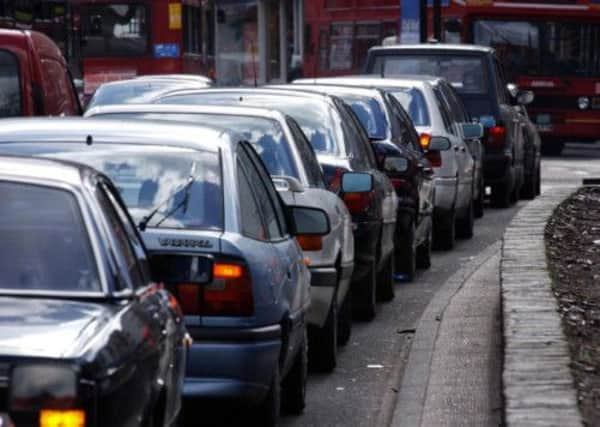Commuting to work by car falls as more travel by bus or train


Although 67 per cent of commuters still drive to and from their workplace, the proportion has fallen by nearly two per cent since 2001.
Meanwhile train, bus and tube travel has increased. More commuters are also getting on their bikes, with London standing out as the country’s cycling capital.
Advertisement
Hide AdAdvertisement
Hide AdThe research, based on 2011 census data, was conducted by a team from the London School of Hygiene and Tropical Medicine.
Study leader Dr Anna Goodman said: “People in England and Wales remain highly car-dependent, but this research suggests we are starting to see a slight decline in car use and an increase in the alternatives.
“This gives some hope that people are travelling in the right direction towards creating a healthier and more environmentally sustainable transport system.”
Across England and Wales, car, van and motorcycle use by commuters has fallen by 1.8 per cent since 2001, while journeying by public transport increased by the same amount.
Advertisement
Hide AdAdvertisement
Hide AdSouthern regions saw the greatest decline in car travel to work. In Greater London, the proportion of commuters relying on private motor transport had fallen by 8.8 per cent.
Just under a third of commuters in the capital (32.2 per cent) drove or rode motorcycles to work in 2011 while more than half of them used public transport – a rise of 7.3 per cent.
Those not motoring or using public transport in London were walking or getting on their bikes.
Pedal power was becoming increasingly popular in London with cycling accounting for 4.3 per cent of work journeys in the capital, a rise of 1.7 per cent since 2001.
Advertisement
Hide AdAdvertisement
Hide AdCycling levels had risen in 29 out of 33 London boroughs. The leader was Hackney, where more than 15 per cent of all commuters cycled to work in 2011, up 8.6 per cent.
Overall the proportion of journeys to work made on bicycles across England and Wales had increased marginally by 0.1 per cent to 3.1 per cent.
The findings, published in the online journal Public Library of Science ONE, were welcomed by the charity Sustrans which campaigns for sustainable transport.
But chief executive Malcolm Shepherd said they highlighted the need for government investment to make it “easier and safer for as many people as possible to choose cycling for their everyday journeys”.